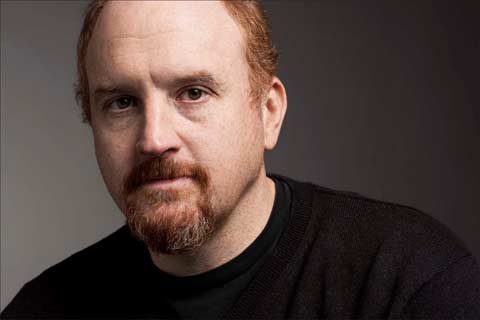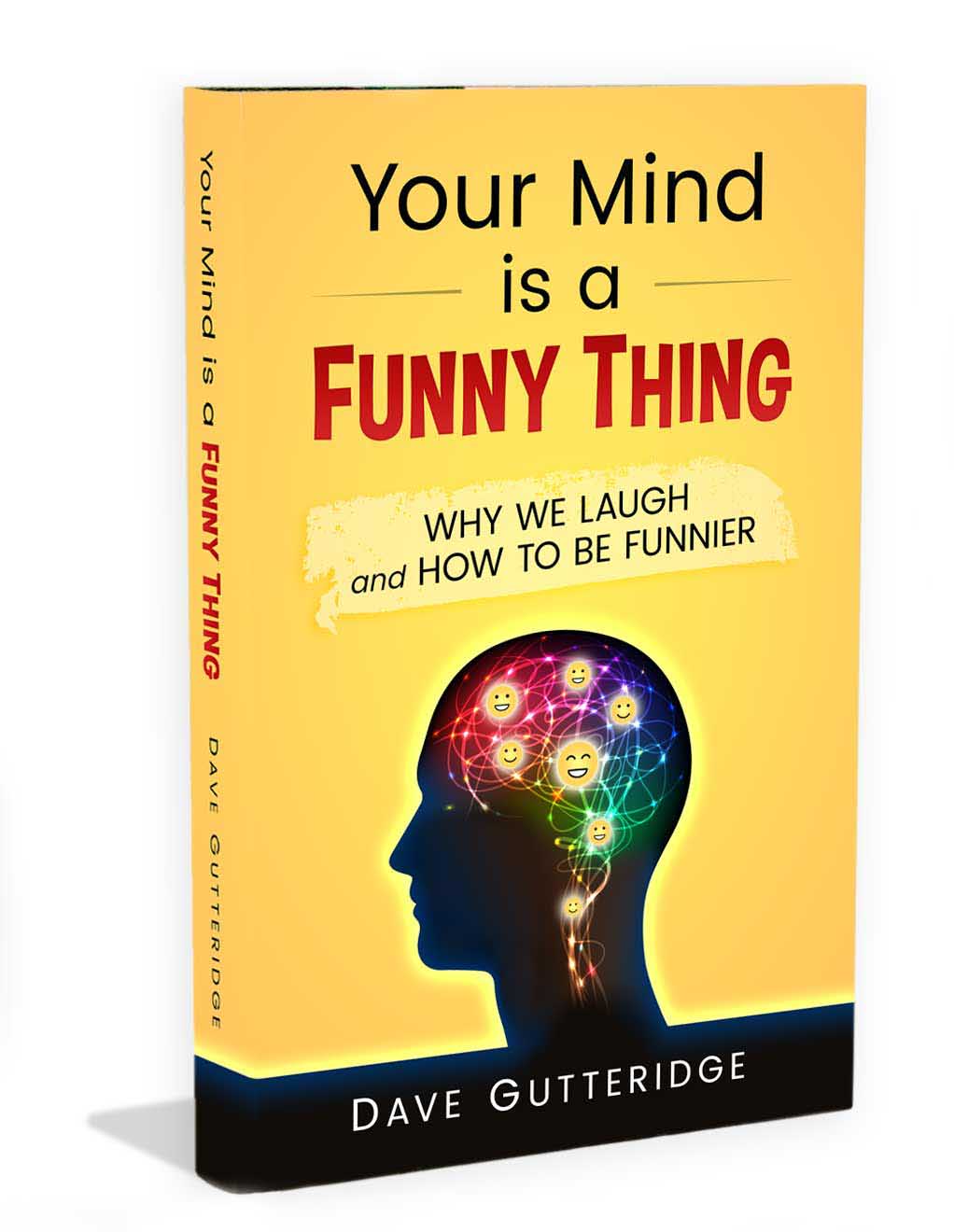The number one cause of "mayhem" among aspiring comedians

Louis CK is a tour de force in comedy these days. He's not just popular with audiences, he's a model for success among so many comedians, including myself. For me, what makes him so appealing as a role model is the complete artistic freedom he has earned for himself. His deliberately experimental show Louis, for example, oscillates between brilliant and not particularly interesting, but either way or in between, what stands out is that he's executing uncompromisingly on his own vision. Louis CK releases his standup specials through his own web site, on his own pace on his own terms and all the money goes to him. Well, in as much as it can after some overhead.
Those are the things that appeal to me about Louis CK's success, but from what I experience with most open mike performers at shows I run is that a lot of aspiring comedians admire how Louis CK seems to get away with jokes on the most vulgar and difficult topics, and not only get away with it, but be praised for it. Unlike, say, Andrew Dice Clay, whose fifteen minutes of fame left as quickly as it came after audiences got over the novelty of having someone on stage be deliberately vulgar, Louis CK's legacy seems set to last. Louis CK not only gets laughs by pushing boundaries, he gets respect. It's something that every comedian would love to have, love to emulate, and so many try.
At my shows, I see countless aspiring comedians attempt "jokes" about rape and paedophilia and whatever else, creating nothing more than simple revulsion in the room. When I talk to them after the show about why they bombed so hard, the name "Louis CK" comes up almost more than anything else. Comedians tell me that he talks about the topics they do, and why should the rules be any different for them? Some say they just admire him and they aspire to do what he does. Some hadn't actually thought of emulating Louis CK, but when I tell them their attempts at "shocking" topics failed, they look at me as if I'm trying to say those topics can't work, and then defensively point out that guys like Louis CK do it all the time, and they seem to just think that it's me who doesn't get it because I'm not "edgy" enough. Ugh.
What makes it difficult to convey to aspiring comedians about how Louis CK is able to get his jokes across is that it's precisely because of his ability to make you unaware of his cautions that make him succeed. He is making sure he gets to a place where he can land a joke about something difficult while at the same time not making it obvious he is couching it in a context that makes it okay. Like a guy on a high wire with a net underneath, the further the net is from the wire, so that it's not in your field of view, the more impressive it is.
A lot of aspiring comedians, though, like audiences, don't see the safety net, and assume it's not there. Which is fine for audiences, but it's not good enough for a comedian to understand a comedy performance the way an audience does. Just like how people who live in houses don't need to know how to build them, but if you're going to make a house for someone, you need to have knowledge about everything that is unseen behind every wall so that the whole thing doesn't fall down and nobody will die as a result of your efforts.
Take a look at this routine, where Louis speaks about men being the biggest danger in the world to women. Specifically, note the line where he says men are the "number one cause of injury and mayhem" to women. If you're an aspiring comedian, what you should give some thought to is how he didn't say "rape and murder." "Mayhem" is kind of an odd choice of word. Have you ever heard a news report say "the suspect is accused of having perpetrated mayhem among some women"? Nope. Why use those words? Because it sounds funnier? Well... sort of. It does make the bit funnier, but not because "mayhem" is such a particularly novel choice.
I would almost guarantee you that in the time before this performance, when developing the material in comedy clubs, he tried saying the more natural "rape and murder," and variations of it, and discovered it just brought the audience down too much. Specifying the exact kind of violence creates too much of a visceral connection to the sad reality he is referring to. For that bit to land, he needs to get across the idea that men cause horrible acts of violence to women, but he needs you to stay focused on the point that men are jerks. A word like "rape" switches the focus to the suffering of women, which is not where he needs this joke to go.
Louis CK is talking about some fairly horrible things. But he's not just spewing it out at the audience. He takes care, down to a word by word level, about what he's saying and how. Not just finding the sharpest words for the greatest comedic affect, but the right words to keep the audience away from ideas so uncomfortable they become distracting. He doesn't just find funniness in delicate topics, he makes them funny by taking care of the audiences position on them.

Sometimes, I tell aspiring comedians that if they're going to cover some difficult topics, that they should just tell the audience you're going to do that. Tell them that you have a purpose for it, and tell them what that purpose is. For example, recently a comedian who is gay wanted to do some material about anal sex and some of its awkward practical concerns. He tried it on stage and just kind of leapt into it, getting into some graphic descriptions of anal sex. It made the audience feel like he was confronting them with a desire to just be shocking and vulgar for its own sake, and they got kind of grossed out. Instead, he could have eased the audience into the topic by just taking a few seconds at the start to say something along the lines of "Hey, so, like, I wanted to talk to you about some stuff that's happened to me in the bedroom, just some stuff that you didn't consider that gay guys have to put up with. This might get pretty graphic, and I'm sorry for that, but, well, its kind of necessary to get where I'm going."
A lot of comedians are kind of suprised at that advice because it seems like it's explaining the joke. But the only thing it's explaining is how you feel. You're telling the audience, in essence, why they should go with you on the journey you're going to take them on. If you can't explain that, if you don't have a good reason for that journey, then why would you assume anyone would want to go with you? Nonetheless, comedians are hesitant to do this kind of thing. After all, a guy like Louis CK doesn't do that. Except, he does. The difference is that he does it so subtly, so smoothly, through his manner, and his choice of words, and everything about his act, so that he is putting his audience at ease in a way that they don't even notice. Aspiring comedians don't notice either, and so they make some wrong assumptions, the main one being that the audience is simply forgiving Louis for going there because they understand a comedy performance is where that kind of thing just happens and audiences just take it. They don't, not ever.
The point of bracing your audience for what you want to talk about isn't to get into the habit of prefacing or explaining your comedy act. The point is to learn what it feels like to reach out to the audience and connect with them to reach a consensus on what topics everyone will be comfortable dealing with as the performance moves forward. As you get better at conveying to the audience who you are, you develop less need to be explicit and more ability to build a connection indirectly. When you get to the point where no one notices you doing it at all, then people will start using you as an excuse for abusing audiences with mishandled attempts at being shocking. Then you'll know you've made it.